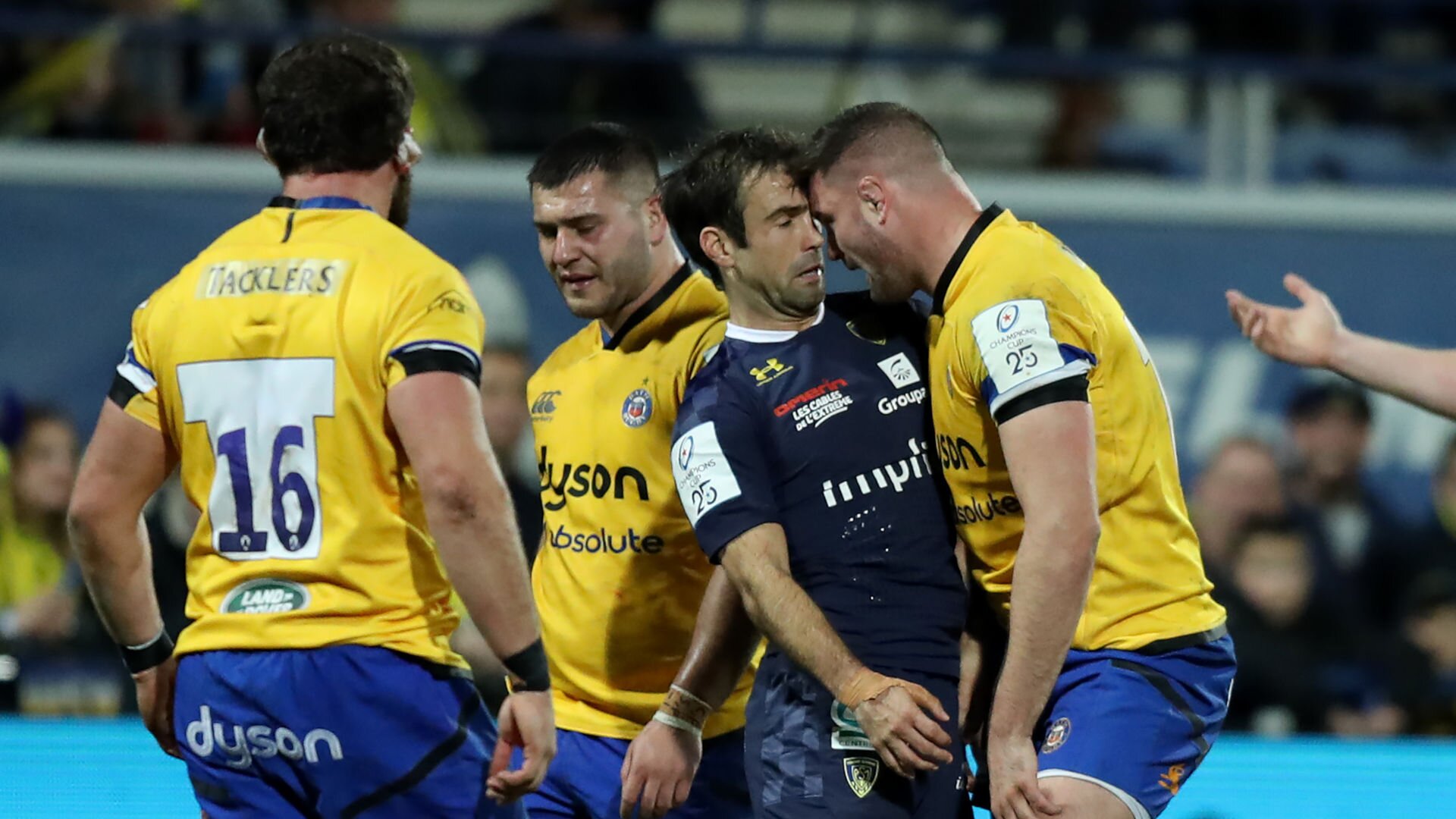More European misery for Bath as Clermont complete eight-try rout

Bath’s nightmare Heineken Champions Cup campaign continued as Stuart Hooper’s men were hammered 52-26 by Clermont Auvergne.
The French side were unstoppable in the first half as they ran in six of their eight tries and recorded a bonus point in just 20 minutes.
Their convincing victory leaves them a point behind Ulster at the top of Pool 3, with Bath bottom after a fourth straight defeat.
Clermont led 40-14 at half-time as Alivereti Raka and George Moala both touched down twice after John Ulugia and Damian Penaud had got the scoreboard moving.
Playground bully @elliottstooke ?
No medics involved today, we don't think ?#HeinekenChampionsCup pic.twitter.com/ihDr4ND21x
— Rugby on TNT Sports (@rugbyontnt) December 15, 2019
Camille Lopez and Jake McIntyre grabbed Clermont’s second-half efforts while Morgan Parra kicked five conversions and Greig Laidlaw added one.
Bath had something to smile about as they claimed a bonus point courtesy of tries from Jack Walker, Ruaridh McConnochie, Tom Dunn and Josh Bayliss.
With just four minutes on the clock hooker Ulugia crashed over from a driving line-out and Parra added the extras.
It soon got even worse for Bath as France international Penaud went over and Raka’s first try of the day made it 21-0 after just 14 minutes.
Clermont’s free-flowing back play continued as the ball was spread down the right side from a scrum and powerful inside centre Moala could not be stopped by the Bath defence as he added a fourth try five minutes later.
Bath finally hit back in the 24th minute. The visitors got a driving line-out of their own going and hooker Walker emerged with the ball. Referee Ben Whitehouse checked the score for obstruction, but it was confirmed by the TMO and Freddie Burns added the first of his three conversions.
By that stage Bath had lost wing Aled Brew to injury after a nasty aerial collision with Samuel Ezeala.
Raka grabbed his second by racing on to a chip through to dot down in the 29th minute and Parra again converted.
Incredible try for Clermont to wrap things up against Bath ?
Raka power ?
Penaud pace ??
McIntyre finish ? pic.twitter.com/j8nk5QugHs— Rugby on TNT Sports (@rugbyontnt) December 15, 2019
Just three minutes later Raka led the charge down the left wing as his team combined power and pace to devastating fashion and Moala crashed over to finish the move off. Parra converted both to make it 40-7.
McConnochie grabbed Bath’s second following an inside ball from Burns which looked forward, but the TMO confirmed the score and Burns kicked the goal to end an all-action first period.
Four minutes into the second half, Lopez tapped and went to score Clermont’s seventh try.
CHAMPIONS CUP XV – RD4 ?
8 @PRO14Official ??????????????????
3 @top14rugby ??
2 @premrugby ???????– as picked by @alexshawsport ???https://t.co/RlbiTft24y
— RugbyPass (@RugbyPass) December 15, 2019
But Dunn responded six minutes later as Bath’s driving line-out again did a good job. Burns brilliantly converted.
The second half was scrappy as Bath chased a bonus point, while Clermont did not hit the same heights of the first period.
Bath managed to grab their fourth try from a driving maul via Bayliss with nine minutes left.
But Bath’s Sam Nixon was sin-binned for a professional foul as he desperately tried to stop Clermont scoring and while he was off the field McIntyre completed the try count with a sensational effort.




































































